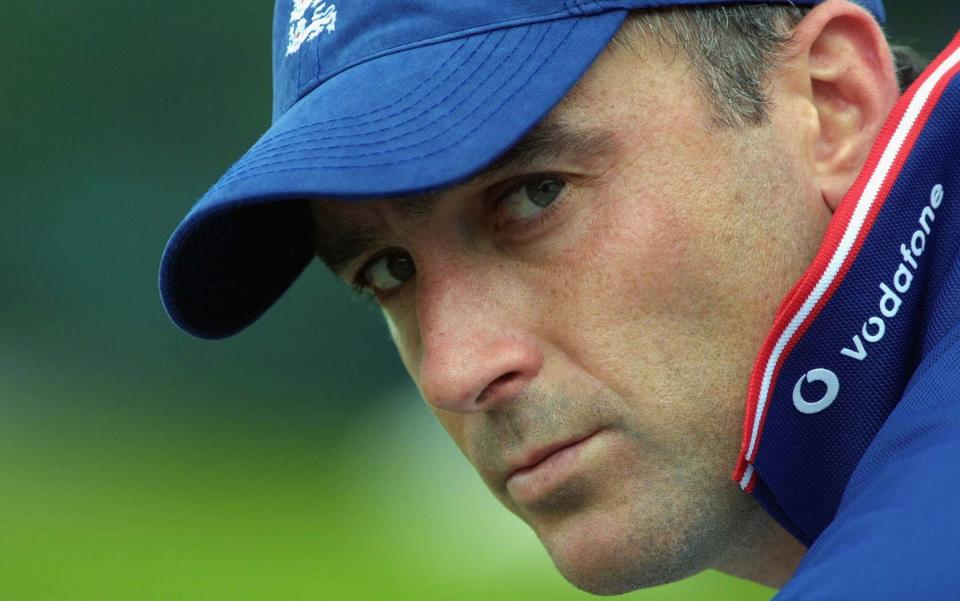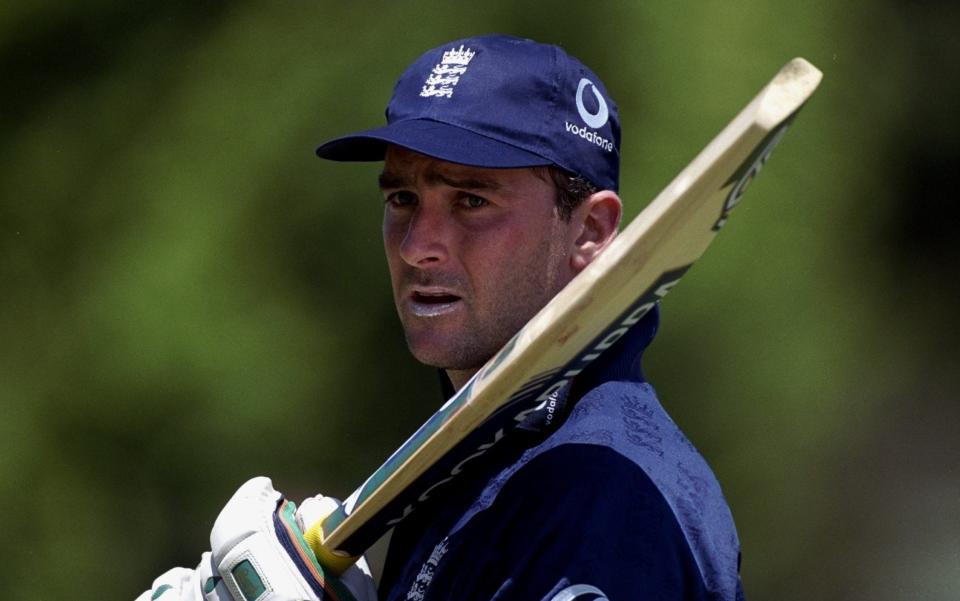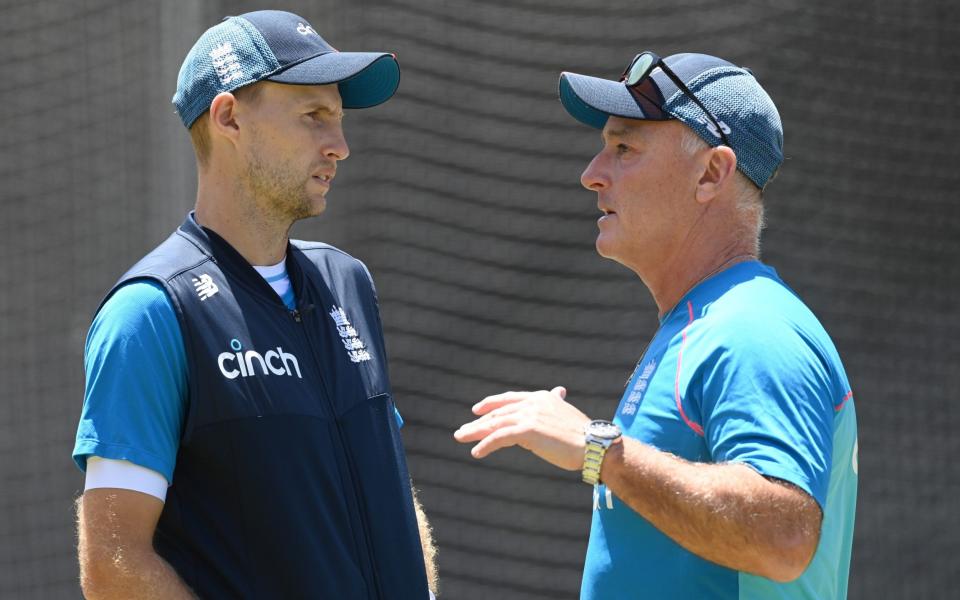Tragedy of Graham Thorpe and how Covid contributed to mental decline

The news of Graham Thorpe’s premature death, aged 55, last Sunday, prompted an outpouring of love and respect for one of English cricket’s great batsmen and most popular figures.
The confirmation, from his devastated family, that he took his own life added another layer of tragedy. More details will emerge at an inquest in Woking that opens on Tuesday, but it is understood he died after being hit by a train in Surrey.
Thorpe had made an attempt on his life in May 2022, just four months after the end of his last involvement with English cricket, as assistant coach to the men’s national team on an Ashes tour of Australia. Then, details of mental health struggles were not made public, with his family issuing a request for privacy, which was observed.
In a moving interview with The Times, Thorpe’s wife Amanda said: “For the past couple of years, Graham had been suffering from major depression and anxiety.”
She added: “Mental illness is a real disease and can affect anyone. Despite having a wife and two daughters whom he loved and who loved him, he did not get better.
“He was so unwell in recent times and he really did believe that we would be better off without him and we are devastated that he acted on that and took his own life.”
Thorpe’s family, according to his 22-year-old daughter Kitty, want to “raise awareness” for the battles he was fighting, but also ensure Thorpe is not defined by them. “It was heartbreaking to see how withdrawn he had become,” she said. “He was not the same person. It was strange to see this person trapped in the body of Dad.”

The tributes to Thorpe have provided a reminder of the warm, wonderful character he was. They also referenced the struggles he suffered following the breakdown of his first marriage, to Nicola, with whom he had the first two of his four children. He once said: “there came a time when I would have given back all my Test runs and Test caps just to be happy again”. He took breaks from the game, notably in 2003, when he spoke about spending months alone at home with the curtains drawn, drinking and smoking.
Thorpe found great contentment with Amanda, and in coaching, as a batting mentor to England greats like Joe Root and Ben Stokes, who were among those to pay tribute this week.
He was England assistant coach in 2019, when they won their first men’s one-day international World Cup. But it was no secret that Thorpe, who had always possessed an anti-establishment streak, struggled with lockdown and the biosecure bubbles in which cricket was played during the pandemic. As Britain briefly emerged from the first lockdown in summer 2020, players and staff were locked down at the Rose Bowl near Southampton, then Old Trafford in Manchester, for matches that stretched their love of the game but ensured that English cricket could “keep the lights on”, according to then chief executive Tom Harrison. That winter, there were bubble-bound tours to South Africa, India and Sri Lanka.
By the time England travelled to Australia, many were at the end of their tether. They were no longer in full lockdown, but they had to quarantine on arrival in Brisbane for the first Test, and were routinely subject to invasive testing. Thorpe was placed in charge of the team for the fourth Test in Sydney when Chris Silverwood tested positive.
“It becomes an unnecessary distraction,” Thorpe said of the Covid protocols. “I do understand it: Australia is in a very different situation. I’d like to think cricket can find a way around it. England have played a lot of cricket, as well. A lot of our players have been in these conditions and this environment for a while. Looking after their mental state of mind is very important as well.
“That’s always been lingering in the back [of players’ minds]… The constant testing, day in day out, is a distraction.”
The Sydney Test was the only one England did not lose on that tour. His instructions to the players were “to go to the beach and have a swim”. Asked about his training sessions, he said: “I’ve had to let them off a little bit. Enjoy what they’re doing. Have fun. Get that tension out of the body”.

Sydney was his penultimate Test with England. In Hobart, England were drubbed, completing an ignominious tour. As the sun came up the morning after, at the tail end of a drinking session between the two sides, Thorpe lit up a cigar indoors at the team hotel, which led to the police being called. When they arrived, Thorpe filmed them “just for the lawyers”. He had sent the video to just a couple of close friends, but it ended up on the Sydney Morning Herald’s website. Thorpe was mortified, contacting players individually to apologise for his part in the negative publicity at the end of a long, joyless tour.
At a time when the game was facing questions over every aspect of its culture, the incident sealed Thorpe’s fate, and he was the third senior figure fired in three early February days: first managing director Ashley Giles, then Silverwood, finally Thorpe.
A veteran of 30 years in the ruthless world of Ashes cricket, Thorpe was said to be understanding of the situation. He was pipped to the head coach’s role at Middlesex by Richard Johnson, before being appointed head coach of Afghanistan in late March 2022. He never took the job, as a result of his first attempt on his life.
The English cricket machine immediately slipped into action to support one of its favourite sons. He was cared for by the NHS for weeks, then with the help of the Professional Cricketers’ Association, his county Surrey, the charity Sporting Chance, and more local NHS resources, further mental health provision was sought.
Through it all, Amanda said “there were glimpses of hope and of the old Graham”. His generation of Surrey players, who enjoyed so much success together at the turn of the century, remain tight-knit, and many were in regular contact with him and his family. Thorpe came to the Oval, where his great mate Alec Stewart is still director of cricket, to help with a couple of coaching sessions when he felt well enough and, in November 2022, attended a dinner in the Pavilion to celebrate the chairmanship of longtime friend of the family Richard Thompson, who was moving from Surrey to ECB. Thompson would be a pillar of support to Thorpe and his family in both roles.
“We supported him as a family and he tried many, many treatments but unfortunately none of them really seemed to work,” said Amanda.
Help is available from the Samaritans. Contact them directly on their 24-hour helpline, call for free on any phone: 116 123
